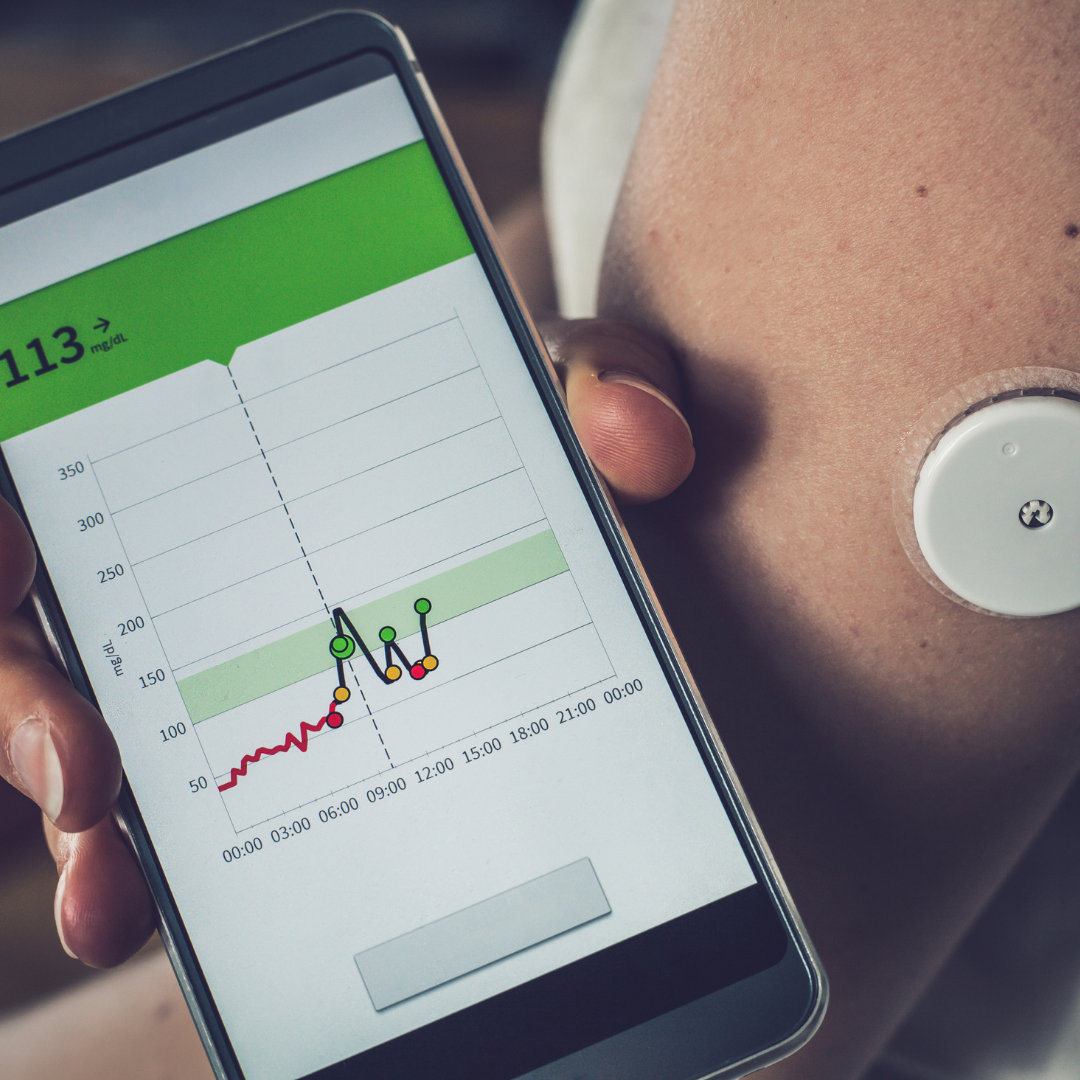Many patients with type 1 diabetes (T1D) use continuous glucose monitors (CGMs) while at home to track their blood glucose levels. These devices measure the amount of glucose in the interstitial fluid around the cells and transmit data to a receiver or smartphone app so that patients can see whether it is rising, falling, or staying steady. This can reduce the number of finger sticks they need to perform to check their blood sugar using more traditional methods.
Currently, CGMs are not approved for use in hospitals. Patients are often asked to remove them during inpatient care. However, with increased safety precautions in place during the COVID-19 pandemic, hospitals have been temporarily permitted to use these devices. It allows them to monitor a patient’s blood glucose without going into their room and being in close contact. While there are concerns about data privacy using smartphone apps, standard receivers can transmit data within a close range.
Hospitals are now gathering and sharing data regarding the use of CGMs with patients with diabetes in order to support efforts for these devices to be permitted all the time, not just during a pandemic. Many patients who use CGMs show improved time in target range and fewer incidences of hyperglycemia and hypoglycemia, at least when used at home. Medical providers are trying to gather evidence of the same type of results when used in inpatient care.
There have been several challenges regarding how to create fair and ethical clinical studies regarding CGM use, but researchers are trying to navigate these obstacles and collect as much data as possible. Some challenges include creating appropriate control groups, managing accuracy, and calibration of devices, and accounting for stressors or medications that may affect results. It can be challenging to show outcomes using CGM versus not. There is also the fact that healthcare providers need to be trained on using this technology and the data available properly.
Small studies have produced some positive results so far, and researchers are hoping to develop more extensive trials for more data to continue to track outcomes. They hope to eventually gain FDA approval for the use of CGMs in hospitals all the time to support patients with diabetes. This could be one more tool to enhance the quality of care and better manage type 1 or type 2 diabetes.
Though not involved with this study, the Diabetes Research Connection (DRC) is excited to see how this initiative unfolds and whether CGMs are eventually approved for hospital use. Researchers are working every day to improve their understanding of diabetes and treatment/management of the disease. This is one more component of the ever-growing body of knowledge and available options for care.
The DRC provides critical funding to early-career scientists pursuing novel research studies around type 1 diabetes. To learn more and support these efforts, visit http://localhost/drc.




